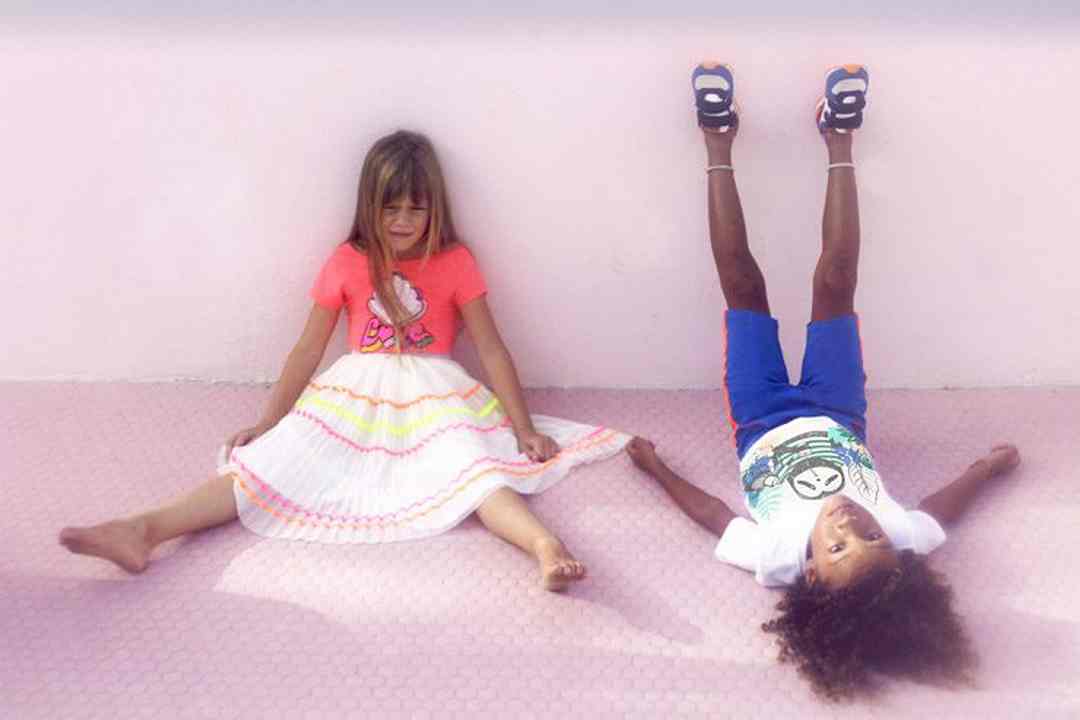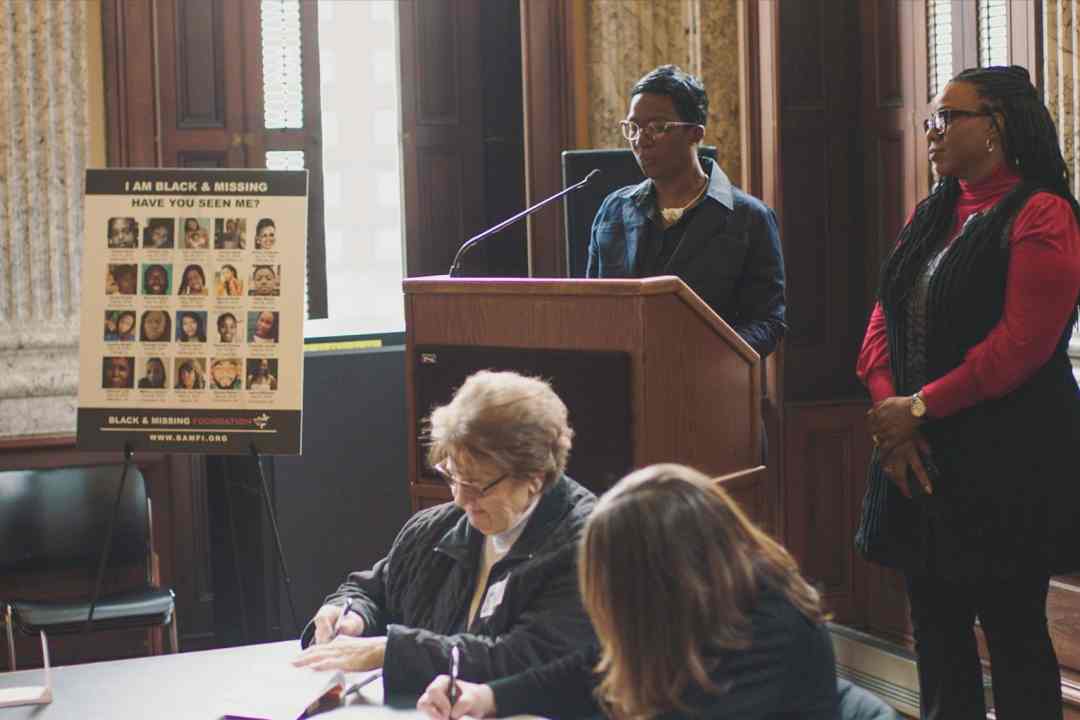“If not us, then who?” The five-word phrase was popularized by Rep. John Lewis and repeated by Derrica Wilson, co-founder of the Black and Lacking Basis, a corporation advocating for Black lacking individuals and the topic of a brand new four-part HBO documentary collection known as Black and Lacking. Derrica and her sister-in-law and fellow co-founder Natalie Wilson have taken on the extremely essential but hardly ever celebrated work of championing among the most overlooked and susceptible members of society. Their work takes them to the grief-stricken arms of households nonetheless searching for their family members, police departments riddled with implicit bias squandering precious time, and newsrooms too busy wanting the opposite option to see the disaster in entrance of them. Fortunately for us, award-winning documentarians Soledad O’Brien (Matter of Truth & Latino in America) and Geeta Gandbhir (Why We Hate & I Am Proof) take us alongside that journey in Black and Lacking.
The 4 episodes provide a uncommon front-row seat into the inspiration’s day-to-day operations, portray a harrowing image. As an activist myself, I’m used to seeing the worst our society has to supply, and even I walked away shocked at simply what number of Black folks—specifically youngsters and girls—are lacking and angered at all the societal boundaries retaining households from receiving the well timed and exhaustive consideration they deserve. Black lacking individuals circumstances stay unresolved 4 occasions longer than these of their white counterparts. “[Derrica and Natalie] must work with the media and police and use the instruments out there to them regardless of how flawed, for the households,” says Gandbhir. The Wilsons’ good technique, born out of their respective expertise in regulation enforcement and public relations, offers the inspiration distinctive and important benefits. Derrica is aware of what high quality and well timed police work appears to be like like, so she will spot when these households are being failed and when protocol is being ignored. Natalie is a PR knowledgeable, so she is aware of when and why the media is brushing these households and victims off. It’s not one company or the opposite dropping the ball solely—it’s each. This angle is what makes their work so impactful, and the collection a must-watch.
[image id=’70341f85-b62a-4128-8424-895801724d8e’ mediaId=’643050b8-4fe8-460c-b2a7-b3099b0a3aaa’ align=’center’ size=’medium’ share=’false’ caption=’Natalie Wilson and Derrica Wilson’ expand=” crop=’original’][/image]
I had the pleasure of talking with each O’Brien and Gandbhir about what introduced them collectively to amplify the Wilsons’ work. Each filmmakers are acquainted with social justice advocacy and the ability of utilizing artwork to amplify it. In truth, it was their collaboration on a previous mission that led to this explicit collection. Gandbhir and O’Brien took discover of early conversations across the “lacking white lady syndrome” which have since turn into mainstream, the place society’s thought of who makes a “good sufferer” results in a discriminate deployment of assets, information cycle consideration, and on-the-ground searches. Whereas all however heaven and Earth will get shifted to seek for lacking white folks and youngsters, Black girls and youth usually tend to be labeled as runaways or delinquents. Past that, the misery of the Black family members left behind is extra minimized and ignored than the white mom pleading for her little one’s return.
The Wilsons face these stereotypes on daily basis as they help households in choosing the proper pictures to share with press and facilitate media coaching to assist garner most empathy. O’Brien is aware of all too effectively what these households are up in opposition to. As a broadcast journalist, she has witnessed firsthand as producers debated whether or not somebody who skilled a traumatic occasion was fairly or likable sufficient to be a visitor, completely disregarding the humanity on the core of their “story.” “It’s brutally unfair…,” O’Brien says, “and typically media fails in how we take into consideration the significance of some folks’s lives.”
Gandbhir agrees, including that “so usually, Black individuals are blamed for the horrible issues that occur to them. And likewise are criminalized—from when they’re youngsters by way of maturity…That’s the most important bias Natalie and Derrica are preventing after they work with households.” It’s actually no simple feat. As we see within the first episode of Black and Lacking, whether or not you might be labeled a “runaway” in these first 48 hours generally is a matter of life or dying. And even when somebody—particularly a teen—has left dwelling willingly, that doesn’t imply they aren’t nonetheless susceptible to risks like cyber grooming to intercourse trafficking. Nonetheless, there’s a full lack of urgency to search out Black lacking folks.
[composite mediaId=’96d1e487-1146-4caa-ba18-12ca7e44792c’][/composite]
Individuals energy is what makes the Black and Lacking Basis so important to the communities they serve. It’s what remodeled the group from a final resort into an emergency room that households now know to achieve instantly. Bridging how this docuseries suits into bigger conversations round police accountability, Gandbhir explains, “911 has been a catch-all for every thing, however Black and Lacking has been a mannequin for another…They’re sort of like superheroes but additionally human. They’re moms, they work full-time. They’re abnormal folks doing extraordinary issues.” That belief and neighborhood rapport has made the staff efficient notably in communities the place folks really feel safer turning a tip into the inspiration than their native police division.
It’s troublesome to outline what success appears to be like like in the case of a lacking individuals case—it doesn’t at all times contain discovering the person in query. When households come to the Black and Lacking Basis, typically they wish to discover their cherished one alive, however typically a lot time has handed, they’re merely in search of closure and somebody to be held accountable. Scrolling by way of the inspiration’s Instagram web page, lots of the identical faces reappear over time with updates on their circumstances, kin, and leads. On posts bearing the phrases “Discovered Secure,” the feedback part is flooded with gratitude and restored religion. On the posts warning of a “Unhappy Information Replace,” folks provide condolences and demand bigger efforts in investigating these circumstances. In each situations, households and buddies discover some closure, which is what Derrica and Natalie Wilson battle for. Their purpose is to supply assist that the neighborhood wasn’t getting earlier than, whether or not that’s by way of discovering that misplaced particular person, serving to family members heal, demanding accountability, or making certain different households don’t must face the identical boundaries sooner or later.
[image id=’f660e3f3-4570-4c0a-aeed-c3ce141da255′ mediaId=’3ebce7fe-51ce-4071-8df7-3fb1058b31e1′ align=’center’ size=’medium’ share=’false’ caption=’Derrica Wilson embraces a community member.’ expand=” crop=’original’][/image]
Watching the collection, it’s simple to turn into initially jaded and pessimistic about what is feasible for fixing this concern. I couldn’t put my finger on it till O’Brien stated this: “Tackling this sort of work, you’d think about that Derrica and Natalie are bitter and indignant…however they’re loving and humorous and on a mission to save lots of lives. In doing probably the most troublesome of labor, they’ve introduced their skills collectively to actually make change.” It’s what makes their dedication much more inspiring, but additionally relatable, Gandbhir says. “They are saying their purpose is to work themselves out of a job. That’s how you understand their intentions are in the proper place.” And that’s an instance price following.
Black and Lacking debuts with back-to-back episodes on Tuesday, Nov. 23 (8:00-10:00 P.M. ET/PT), with the ultimate two episodes airing back-to-back on Wednesday, Nov. 24 on the identical time. All 4 episodes will debut on HBO and be out there to stream on HBO Max.
Brea Baker
Brea Baker is racial and gender justice activist working regionally and nationally in direction of the liberation of all oppressed folks with an emphasis on Black folks and girls.










